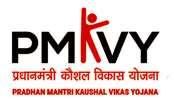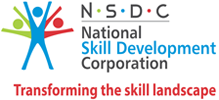- April 21, 2023
- Bookkeeping
- No Comments
Bookkeeping for Nonprofits: A Complete Guide
Many new nonprofits must rely on volunteers to record financial reports, so when electing a treasurer, you can look for someone with a similar background. You must keep these funds separate from your personal account to remain transparent and provide required reports to your board and the IRS. It’s also important to recognize that bookkeeping is not a part-time job. Adding this responsibility to an existing staff member’s to-do list will likely overwhelm your employees, and your books won’t get the undivided attention they need.
Best for Free Basic Accounting Tools
- We bring clarity to your finances so you can focus on leading your organization, not chasing numbers.
- Nonprofits are subject to stringent financial reporting requirements.
- To fulfill your mission and impact the communities you serve, you have to raise and allocate funds wisely—That’s why bookkeeping for nonprofits is an essential part of what you do.
- This will help you decide which accounting software meets your needs best.
- Pursue certifications such as Certified Nonprofit Accounting Professional.
- Many nonprofit organizations have or are interested in establishing a reserve fund to sustain the long-term future of the organization and/or provide the organization a source of capital for future development.
- You’ll have secure, 24/7 access to your books and records, from anywhere you have a broadband connection.
Not for profit bookkeeping is the process of recording, organizing, and managing the financial transactions of non profit organizations. It involves unique practices such as fund accounting, tracking donor contributions, and ensuring compliance with regulatory requirements. We may be biased, but we recommend that your organization outsource its accounting services to a nonprofit-specific firm like Jitasa. Our expert accounting team has worked with nonprofits of various sizes and missions for more than 15 years, and we use our experience to create tailored solutions for every organization. We also offer bookkeeping services and fractional CFO guidance through the Jitasa Strategic Advisory Team (J-SAT) to develop a well-rounded financial management system for your organization.
Start reconciling your bank accounts
It helps ensure donor restrictions are honored and funds are used as intended. Now that we’ve discussed the common challenges in nonprofit accounting let’s explore proven practices that help organizations overcome these obstacles. While every nonprofit faces unique circumstances, these fundamental strategies help build strong financial management systems that work. Likewise, regular reporting builds donor trust and often leads to continued support. Your nonprofit accounting system should make it easy to generate standard financial reports and customized impact statements showing donors how their support advances your mission. Different funding sources come with different nonprofit accounting requirements.
Start making budgets
Otherwise, there are free accounting choices, but you should consult a professional before making final judgments about your non-profit’s financial software. That is why to perform all accounting activities smoothly and error-free a non-profit will require bookkeeping. Your accounting obligations differ from those of for profit organizations if you operate a non-profit group. Your expenditures The Key Benefits of Accounting Services for Nonprofit Organizations will be influenced by how your accounting systems, processes, reporting requirements, and laws are established and handled, in addition to these core bookkeeping duties. There is some overlap between bookkeeping and HR departments when it comes to payroll, but most small to mid-sized organizations delegate this task to the non-profit bookkeeper.
Her meticulous nature of tracking every penny and footing every report ensures consistent accuracy. Lea Ann is a payroll rockstar as well as our go-to resource when we need to sort out and understand intimidating amounts of documents and records. She enjoys spending time with her husband and children, reading, activity books, music and is a Los Angeles Dodgers fanatic. Megan has been working in financial management, data analysis, and reporting for over ten years. Before joining Nonprofit Bookkeeping, she was a supply chain analyst with the world’s largest flexible packaging manufacturer.
- These areas are typically covered by your organization’s chief financial officer (CFO) and treasurer, respectively.
- Each fund tracks money earmarked for a specific purpose—scholarships, building projects, or disaster relief—so you never mix it with unrestricted revenue.
- Get free guides, articles, tools and calculators to help you navigate the financial side of your business with ease.
- Nonprofit-friendly accounting software shouldn’t just allow you to create professional-looking budgets.
- We aren’t lying to ourselves that people enjoy hanging out with their accountants.
- Get 50% Off for 3 Months—track funds with clarity and build trust with every dollar.
- Her Bachelor’s degree is in Supply Chain and Operations Management and she is working on her Master’s Degree in Business.
Using the details you recorded about your nonprofit’s transactions, create a broad overview of your financial position and develop a plan to get your revenue where it’s supposed to be. To do this, you’ll need to set reasonable expectations for your income, expenses, and financial goals. Then, plan out how you’ll spend your income in a way that achieves those goals. Nonprofits should regularly conduct audits on themselves to ensure all accounting is up to the standards of both GAAP and the organization itself. The documentation generated by these audits can also have another use, helping you secure grants and funding from state and federal governments. Plus, nonprofits that regularly audit themselves will be considered more credible and trustworthy by potential donors.
Criteria for Selecting Bookkeeping Software
- Explore how our team can lighten your administrative load and strengthen donor confidence.
- Bureau of Labor Statistics, there are approximately 65,000 people working in accounting and finance fields at nonprofit organizations.
- Since 1999, Fohrman & Fohrman has helped hundreds of organizations of every size by providing specialized nonprofit accounting expertise on demand.
- Each nonprofit should choose based on its unique situation, aiming to maintain accurate financial records while using resources wisely.
- Most nonprofits elect some kind of treasurer or financial officer to manage all of the organization’s finances.
- Some donations and grants will come into your organization restricted for specific purposes.
- Review your annual tax returns for accuracy and to ensure that your organization is taking advantage of all available deductions and credits.
While managing individual gifts might seem easy, they often require sophisticated tracking systems. These systems handle recurring donations, matching gifts, and varying restriction levels. For example, New York and California have detailed reporting requirements, while other states might be more relaxed.
Tailored recommendation for your business
Bookkeepers must process large volumes of transactional data within tight deadlines. Late transaction recording can create a domino https://greatercollinwood.org/main-benefits-of-accounting-services-for-nonprofit-organizations/ effect, delaying financial reports, board approvals, and IRS filings for tax-exempt status. This article will guide you with all the essential information included in bookkeeping for nonprofits.

 +91 92155 56156, 92159 08888,
+91 92155 56156, 92159 08888,  studymatrixhsr@gmail.com
studymatrixhsr@gmail.com 



